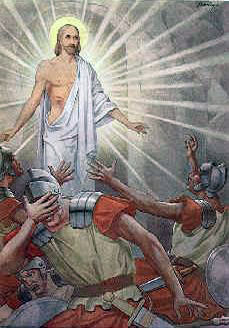podcast 372 – Book Session Identity Crisis – Part 1
Four authors summarize their views on the Trinity.
Four authors summarize their views on the Trinity.
In this final part of our discussion Dr. Rauser and I continue to discuss his interesting new book: Is the Atheist My Neighbor? Rethinking Christian Attitudes toward Atheism.
Evaluating Dr. Craig’s unique take on “two natures” christology, his “Neo-Apollinarian” theory.
William Lane Craig makes some false and misleading claims about the New Testament Jesus.
Here. It’s an excellent, substantial discussion, posted in December 2014. If you don’t know who Dr. Rea is, he’s a leading Christian philosopher, specializing in metaphysics, and co-coiner of the useful term “analytic theology.” Here’s a rough guide to the interview, in case you want to skip around, or review after the fact, with a few sparse comments in italics. 1-12:20 Randal reads quotes about how difficult a… Read More »Dr. Randal Rauser interviews Dr. Michael C. Rea on the Trinity
Discussing trinitarian vs. unitarian Christian theologies with Dr. William Lane Craig.
In the same issue of Faith and Philosophy (22:1, Jan 2005, 77-86) Bill Craig has a critical response piece. (Available online here.) First, he gives a nice and clear summary of their article, more complete than the one I gave last time. Then he proceeds to object. As with most philosophical theories, when you start objecting, things start getting complicated, and you start to understand the theory in question better.
For starters, what do they mean by “the divine essence”? What sort of thing is this which constitutes the persons? Rea answers in an email which Craig quotes:
All we mean to commit ourselves to is the idea that maybe the Persons are like a hylomorphic [form plus matter] structure: there’s something…we call it the “divine essence”… that plays the role of commonly shared matter, and, for each Person, something else that plays the role of form. (80)
Read More »Constitution Trinitarianism Part 2: Craig’s objections
Does Dr. Craig’s “Neo-Apollinarian” theory about Christ show how one person can be both divine and human?
To fully understand a philosophical theory, one needs to understand not only the content of it, but the reasons for which it is held. This is why I’m patiently going through how Moreland and Craig reject what they see as the competing Trinity theories, before giving their own.
As we’ve seen, they consider themselves to be “social trinitarians” (last time we looked at their rather vague definition of that term). They then adopt Brian Leftow’s taxonomy of social trinitarian theories, and decide that the first of these is the most promising. Read More »Trinity Monotheism Part 3: Their Set-Up, Part 2
Some critical thinking about Craig’s Trinity theories: his Trinity monotheism and his minimal tripersonal monotheism.
I explain my view that arguments from truth are a greater threat to human freedom than are arguments from foreknowledge, and I argue against the all-false view about statements about future events that (as of now) may or may not occur.
Has Dr. William Lane Craig put forward what is plausibly a biblical and possibly true two-natures theory about the Lord Jesus?
Equally divine or not? Dr. Craig on generation, procession, and the Logos theologians.
“…in Dr. Craig’s view…the only true god would be something other than the one who Jesus identified as the only true god, as his own god, and as the god of his followers.”
“It’s not identification, but rather predication.”

Of all the ancient catholic “fathers” I’ve read, Origen (c.185-254) is the most impressive as a scholar.
It’s not that I usually agree with him – any non-Platonist is going to choke on many of the dishes he’s serving, and I think that most today would take issue with some his ways of interpreting the Bible. But he has vast knowledge, he makes pretty careful distinctions, he knows how to argue, and is just a much more developed and original thinker than most. Any contemporary who was going to square off with him either did or should have considered him a formidable opponent.
He wrote, or rather dictated, a vast amount – evidently, he did little else. Some think he may have been the most prolific person in antiquity. We still have a fair number of texts from him.
He’s historically important for many reasons, but for this post, what’s most important is that in the 3rd century he was considered a stalwart of mainstream (“catholic”, or “proto-orthodox”) Christianity.
Lately I’ve been reading Origen’s Commentary on John, as translated by Ronald E. Heine, who by way, I have found very helpful. He too is a first-rate scholar.
Evidently, passage here is directed against certain monarchians who thought (or at least, were alleged to think) that the Father = the Son, i.e. that the Son is the Father himself and vice versa. This passage struck a nerve with me, as it reminded me of conversations I’ve had.
The references in brackets are from Heine’s footnotes.Read More »Origen: the Son is not the Father
Does Aristotle discuss the concept of numerical identity in only one passage?